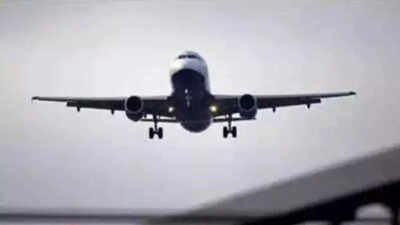
The recent lithium battery fire aboard an Air China flight on October 18 has once again spotlighted the growing aviation safety concerns related to power banks and lithium-ion batteries. Flight CA139, traveling from Hangzhou to Incheon, South Korea, was forced to divert to Shanghai after a lithium battery either from a power bank or a device ignited in an overhead bin. Fortunately, no injuries were reported and the plane landed safely. This incident renews global concern about the risks posed by lithium batteries onboard aircraft, particularly when stored in overhead compartments where smoke detection can be delayed.Barely a day later, on October 19, an IndiGo flight in Delhi faced a similar scare when a passenger’s power bank caught fire during taxiing. The crew contained the blaze swiftly with no injuries, underscoring the persistent risks of these devices in aviation. Airlines stressed the importance of strict guidelines for battery-operated devices following these events.The International Air Transport Association (IATA) reports lithium battery fires occur about once every 10 days globally, often involving power banks or spare batteries in overhead bins. Aviation experts caution that while a full global ban on power banks is not immediate, tightening watt-hour limits and usage rules is underway. If incidents persist, wide prohibitions could follow, but banning all lithium battery devices is impractical given their ubiquitous use in laptops, medical devices, and cameras.
Lithium-ion battery and power bank fire incidents trigger stricter airline regulations
Following the incident, China has banned uncertified or recalled power banks on domestic flights from June 2025 onward, allowing only “3C” certified units. Several airlines, including Korean Air, Air China, and Qantas, have also issued advisories restricting power bank use onboard. The European Union Aviation Safety Agency (EASA) has called for improved crew training on lithium battery fires and better passenger communication about safe storage. Ahead of these incidents, UAE carriers like Emirates and flydubai had already introduced stringent controls effective October 1, 2025. Still, passenger confusion remains high; many incorrectly believe power banks can be checked in, despite global rules requiring them in cabin baggage with terminal protection. Travellers are urged to carry only certified power banks under 100 Wh in hand luggage, avoid using or charging them during flights, store them within easy reach (not in overhead bins), and report immediately if devices overheat, smoke, or spark.
List of items banned/prohibited by UAE carriers
| Item / Category | Cabin (Carry‑On) | Checked Baggage | Key Restrictions / Notes |
|---|---|---|---|
| PEDs with built‑in lithium batteries (phones, laptops, tablets, cameras) | Yes | Yes (in many cases) | Battery must be ≤ 100 Wh; max 15 devices per passenger (Etihad); must be fully switched off in checked baggage. |
| Spare / loose lithium batteries | Yes (cabin only) | Not allowed | Must be ≤ 100 Wh (or ≤ 160 Wh with airline approval); terminals must be protected. |
| Power banks | Yes (under 100 Wh only) | Not allowed | Only 1 per passenger (some airlines); must be labelled; usage banned onboard on some airlines (e.g., Emirates from Oct 1, 2025); must not be stored in overhead bins. |
| Smart bags / motorised rideables (hoverboards, mini‑Segways, etc.) | Often banned | Not allowed | Battery must be removable; if not, item is fully prohibited. |
| Mobility aids with lithium batteries (wheelchairs, etc.) | Allowed (with approval) | Allowed (with approval) | Battery ≤ 300 Wh (or 2 x 160 Wh); must be removable and protected. Airline approval required. |
| Devices with integrated lithium batteries (in checked baggage) | Sometimes allowed | Yes (with conditions) | Device must be off; lithium content restrictions apply (metal > 0.3 g or ion > 2.7 Wh may be restricted). |
| Liquids, aerosols, flammable items | Varies | Varies | Alcohol above 70% banned; compressed gases, flammables restricted; check airport/airline rules. |
Key highlights and practical tips
- The 100 Wh capacity threshold is a recurring standard for lithium‑ion batteries across these UAE airline/airport policies (carry‑on only for many battery types).
- The rule that power banks may not be used onboard flights (on certain airlines) is relatively new (e.g., Emirates from 1 October 2025) and reflects a tighter safety stance.
- Many items that use lithium batteries (spare batteries, power banks, rideables) are considered high fire risk — thus limitations apply for carry‑on vs checked.
- Even if an item is technically allowed, poorly‑packaged or non‑compliant items may be confiscated at security/boarding. Emirates explicitly warns of this.
- Always check both your airline’s policy and the airport/departure country’s regulated lists (e.g., Dubai Airports “Departures Prohibited Items”).
- For flights to/from the U.S., additional rules apply (e.g., electronic devices must be charged and operated when requested).
While the Air China fire could accelerate regulatory restrictions, the aviation industry balances safety with practicality, given passengers’ dependence on battery-powered devices. Experts emphasize the shift from convenience towards caution will continue, with potential for stricter bans if major fire incidents reoccur. Until then, strict adherence to existing guidelines remains key to safe travel.






